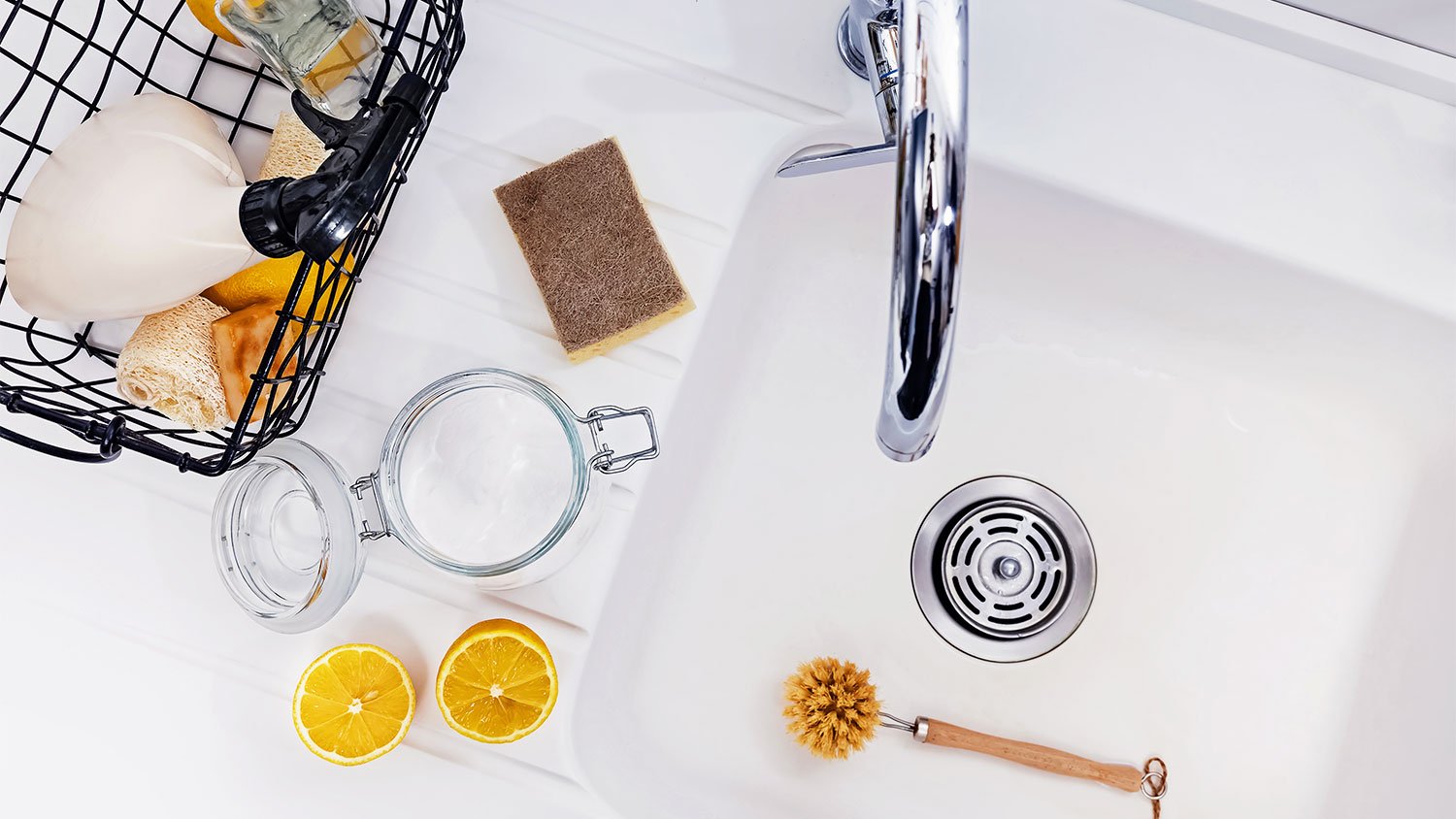What’s the Dish? Learn How to Maximize Dish Soap to Kill Germs
Dish soap and hot water go together like peanut butter and jelly


Most dish soaps aren’t designed to kill germs.
Use hot water above 140 degrees Fahrenheit to kill germ instead.
Antibacterial soaps offer more cleaning power.
Let’s face it: Cleaning the kitchen may not exactly be the most exciting way to spend an evening. What is exciting, though, is the thought of sending all those nasty germs and bacteria that have accumulated on your surfaces to an early grave.
But if you’re relying on your dish soap to do the germ-killing work for you, you may be in for an unhappy surprise. In fact, your favorite dish liquid may not be designed to kill germs. The good news, though, is that there are things you can do to kick the disinfecting power of your dish liquid into overdrive. Read on for five tips to do just that.
1. Use Hot Water
The key to killing germs doesn’t necessarily rest with the kind of dish soap you use. Instead, it’s all about your water temperature.
Using hot water to wash your dishes or clean your kitchen surfaces will kill those icky germs, even if your dish soap isn’t of the antibacterial variety.
A word of warning, though, water temperatures above 140 degrees Fahrenheit are best for killing germs, but such high temps can also scald your skin, so make sure to protect yourself by wearing rubber dish gloves.
2. Clean Your Sponge or Dish Rag
It might not be fun to think about, but your sponges and dishrags are the perfect breeding ground for bacteria. After all, they’re almost always damp. So, if you’re not careful, what you’re actually just doing is spreading the germs around when you think you’re cleaning.
If you want to improve the germ-killing power of your dish soap, then you need to make sure you’re regularly sanitizing or changing out your sponge and dishrags. Ideally, this would mean washing your dishrags in the washing machine and dish scrubbers and sponges in very hot soapy water or popping it in the dishwasher after every use.
Just make sure there’s no residual dish liquid in your scrubber because liquid soap is one of the items not to put into a dishwasher. You should also plan to replace your sponges and scrubbers at least weekly, especially with heavy use.
3. Opt for Antibacterial Dish Soap
While it’s true that any variety of dish soap can kill germs if the water is hot enough, if you want to take your soap’s disinfecting power to the next level, then look specifically for an antibacterial product. However, you’ll want to be cautious because antibacterial soaps can cause skin irritation, especially in those with sensitive skin.
4. Trade Your Soap for Vinegar and Baking Soda

Sometimes, the best way to get a great deep clean in your kitchen is to forego the dish soap entirely. If you want to sanitize your surfaces without harsh chemicals or irritating detergents, you just can’t beat good old vinegar and baking soda.
5. Call in the Pros
Another terrific way to boost the disinfecting power of your dish liquid is to call in the local house cleaner. Hiring a pro to give your kitchen a thorough cleaning will make it easier for you and your trusty dish soap to keep your surfaces fresh and germ-free.





- 10 Surprising Uses for Dish Soap Around the House
- 10 Ways Soap Can Become Your Gardening BFF
- How To Disinfect Your Home
- 11 Easy Tips to Use Less Water While Washing Dishes
- How to Clean Your House During and After an Illness
- How to Disinfect the 6 Germiest Places in Your House
- 10 Tips for Disinfecting Your Bathroom
- How Often Should You Change Your Dish Scrubber?
- 6 Spots You Can Clean at Home to Prevent Winter Sniffles
- The Sneakiest Types of Hidden Bathroom Germs and How to Prevent Them









